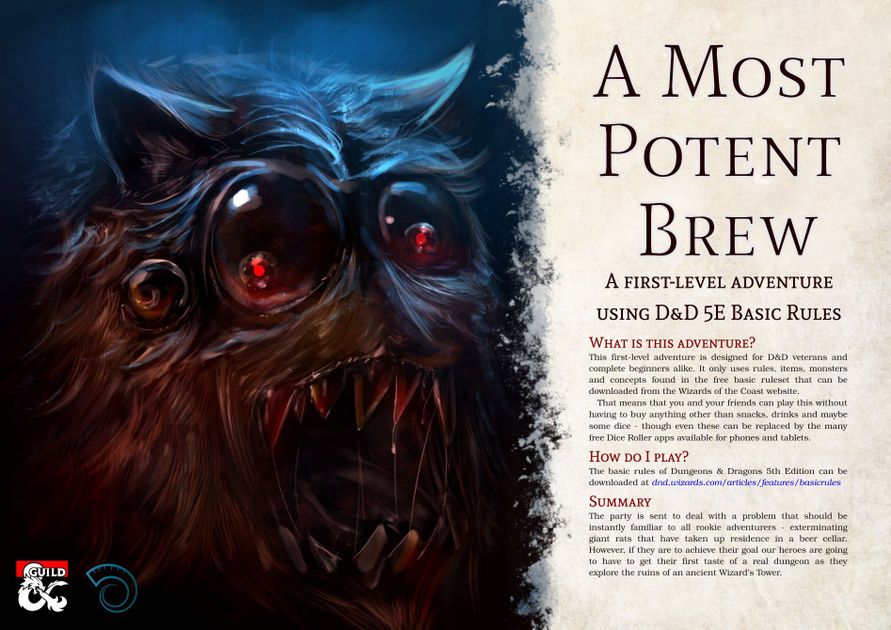As I previously mentioned, I ran a short D&D 5e game for my inlaws on Christmas Eve. I ultimately elected to run "
A Most Potent Brew," which I picked up on the DMs Guild. I thought it would be short and relatively uncomplicated, and it wound up being a good choice, having samples of exploration and puzzles as well as combat.
The setup involved a brewery (which I remained the Silver Dragon) where workman had inadvertently opened a whole into the buried lower levels of a forgotten wizard's tower. The monsters were mostly vermin: giant rats and giant centipedes. There was one unique monster, though, a giant spider with a fiery bit and web.
The party consisted of a fighter, a cleric, and a warlock, all first level. My wife (as usual) was the cleric. She let her parents take lead, but helped them with the rules and encouraged them when they dithered too long. Ironically, her character was the only one that came close to dying, having been heavily damaged by the fire spider, though some difficulty with a puzzled-based trap was a close call for the fighter.
A good time was had by all. The adventure had little novelty, but it was just about perfect for introducing rpg-naive player's to the mechanics and conventions of D&D in short session. A couple of observations, perhaps of interest: the oft-repeated old school saw of longer and more detailed character creation leading to player's not being sufficiently willing to let their character's die is, at best, only part of the picture. My inlaws were not involved with character creation at all beyond choosing their class, and they were very cautious and death-averse. Both being avid gamers, I suspect they equated death with loss and didn't want to lose. Secondly, so much of D&D mechanics are sort of legacy (ability scores as opposed to just their modifiers, for instance) and could probably be streamlined to make it easier for new player's to understand.



















